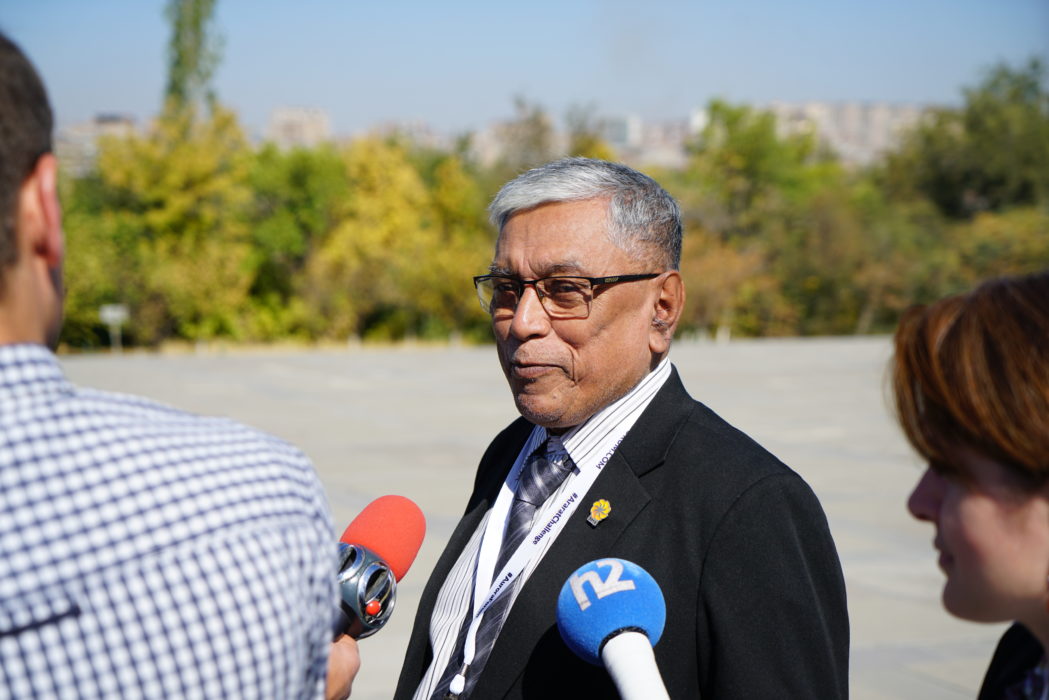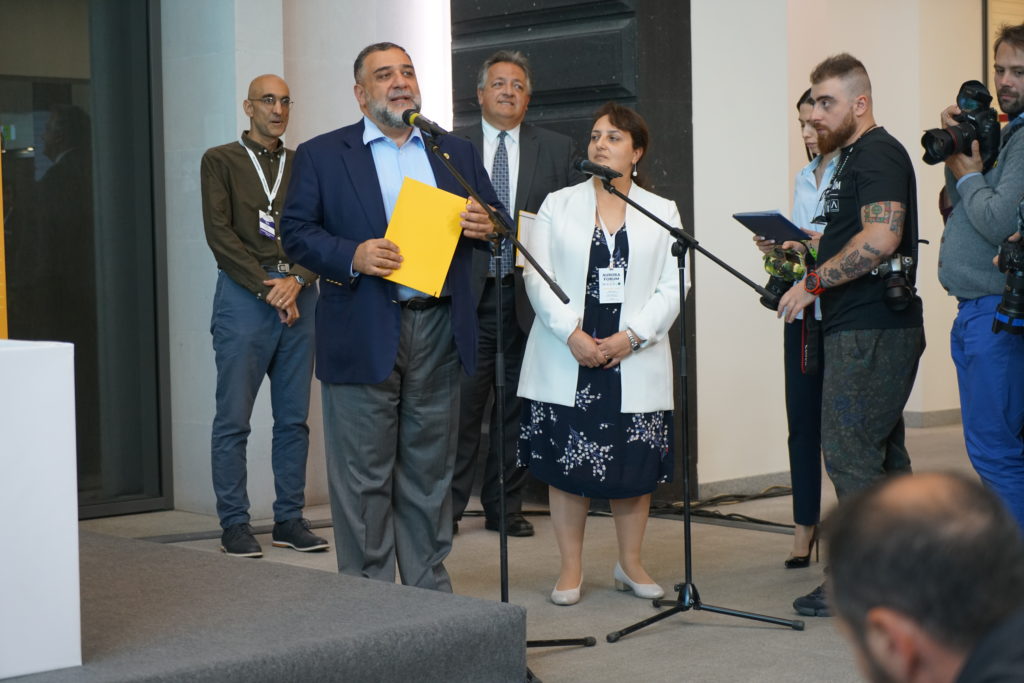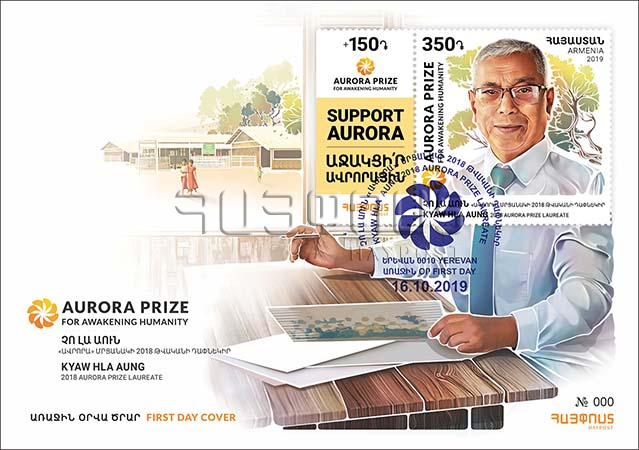YEREVAN — Despite the tragic nature of its focus, this year’s Aurora Forum had many uplifting and even joyful moments. One took place on October 16 at the bright and modern-looking Kamar Business Center, where a new postage stamp by Armenia’s official postal operator HayPost featuring Kyaw Hla Aung, the 2018 Aurora Prize Laureate, was cancelled with the participation of Aung, Minister of High Tech Industry Hakob Arshakyan, 2017 Aurora Prize Laureate and chair of the Aurora Humanitarian Initiative Dr. Tom Catena, HayPost Executive Board member Arayik Abrahamyan, and President of the Union of Philatelists of Armenia Hovik Musayelyan.
This was the third year that cooperation among the Aurora Humanitarian Initiative, Haypost, and the Ministry of High-Tech Industry of the Republic of Armenia has led to the issuance of a commemorative stamp. Attached to it is a donation coupon for 150 dram. HayPost transfers the 150-dram donations to the Aurora Humanitarian Initiative to help support humanitarian projects in 15 countries. The stamp designer each year has been Aurora Humanitarian Initiative member Alla Mingalyova.
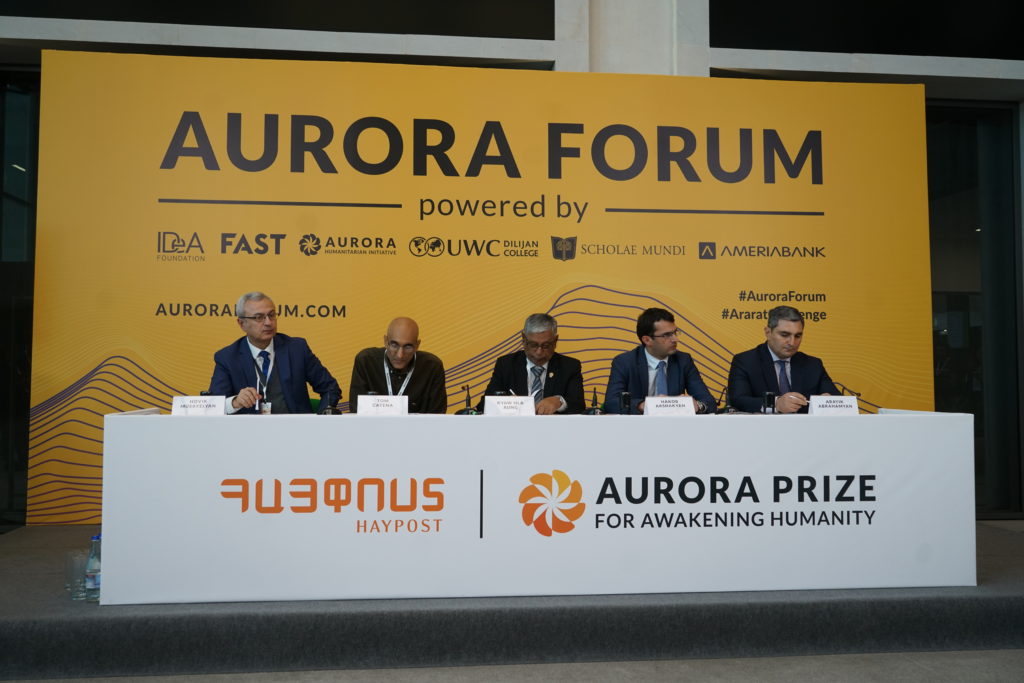
Catena at the ceremony declared to the audience, including a large number of journalists, “The beauty of this stamp is that this stamp will now go all over the world, as you can imagine, and people will see that. This will help raise awareness about the plight of the Rohingya people and will make them ask questions…” Aurora co-founders Ruben Vardanyan and Noubar Afeyan briefly spoke about the goal of the Aurora Forum to both give Armenia strength and give some strength back to the world, with Armenia turning into a platform or center of innovation and discussion.
Prior to the ceremony, Aung visited the Armenian Genocide Museum-Institute and Memorial at Tsitsernakaberd and also planted a tree in the garden which is identified with a plaque bearing his name.
Aung spoke briefly on several occasions during the day about the situation of the Rohingya. The 79-year-old lives in a camp for internally displaced people (IDP) near his native city of Sittwe, capital of Myanmar’s Rakhine state. Even coming to Yerevan is a very difficult task for him. He said that he had to apply to various Myanmar state offices, then go to the capital of Yangoon, and again provide documentation and explanation of where he is going and why. The process took over a month.
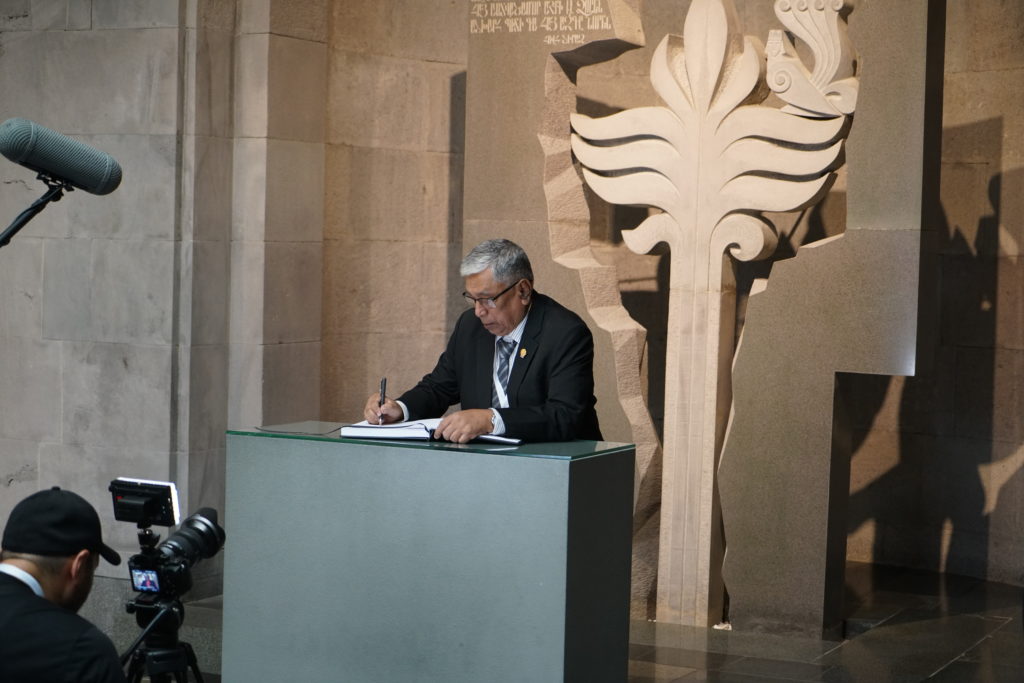
Aung said, “I don’t know why Aurora selected me but I am working for human beings since 1962, when our Myanmar government was caught [in a coup] by General Ne Win. At that time, the Myanmar government also [began] discriminating against Muslims and Christians there in our country. Since then, I am working for human beings, to get equality.”



